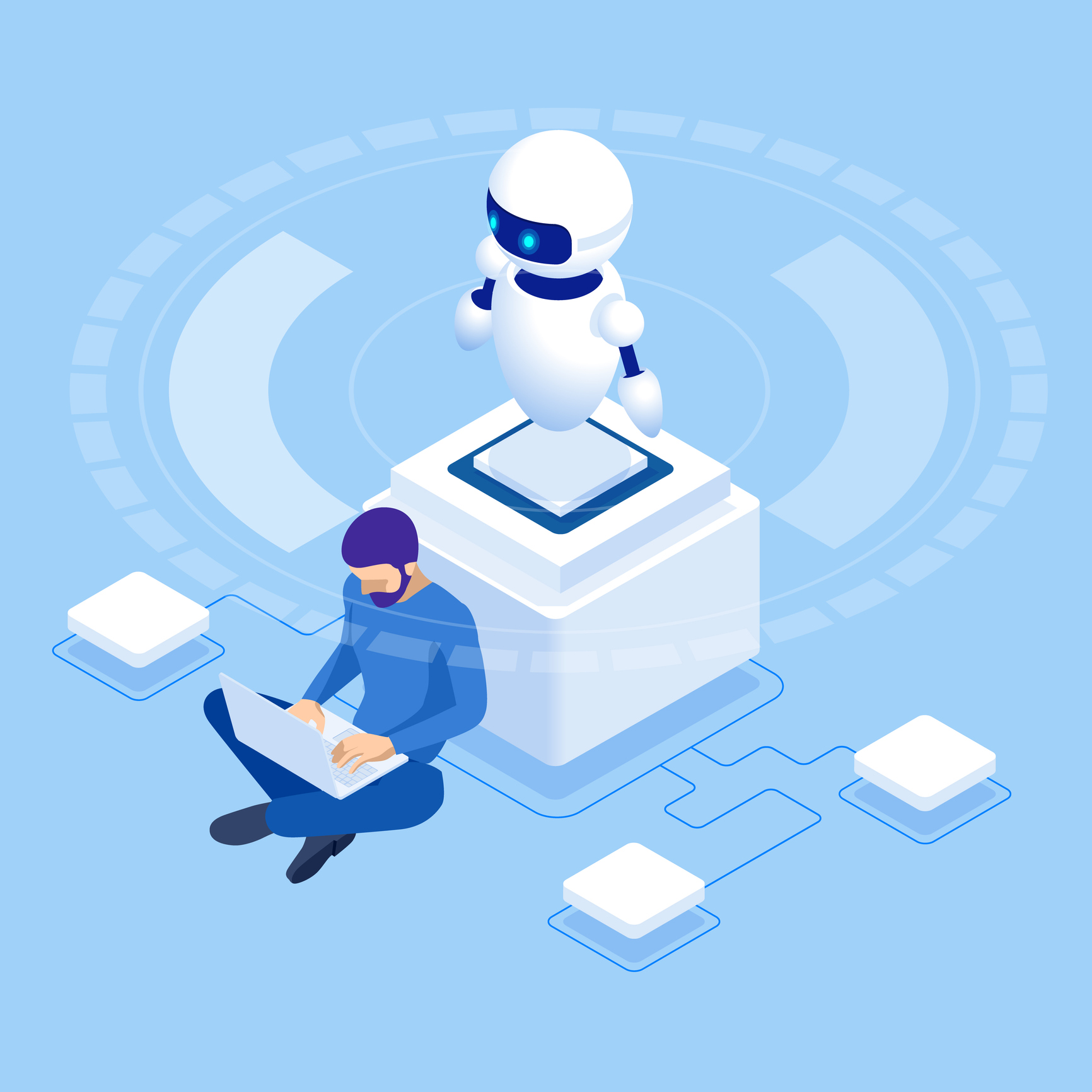
Artificial intelligence : the growing interest of e-merchants
Thanks to the explosion in the number of available data and the exponential growth in the computing power of computers. Artificial intelligence is no longer a futuristic concept and the e-merchants have become aware of it. Many of them are developing initiatives involving a layer of artificial intelligence. And this at all levels of the chain of value. From marketing to logistics management. For both increase revenues, improve customer experience, and control their costs. It is part of the innovation movement.
With this in mind, e-merchants remain attentive to the active ecosystem of startups offering innovative artificial intelligence solutions for the sector. By creating accelerators or incubators. To give them visibility on new developments.
What is the difference between artificial intelligence and automation?
The term artificial intelligence is nowadays used in a very broadway. But it goes far beyond simple automation. Which is the partial or total execution of technical tasks by a machine without the intervention of man. Indeed, artificial intelligence brings together a heterogeneous set of measures. Which have in common to imitate human cognitive functions.
AI and e-commerce: a phenomenon still in the pipeline
Three stages of artificial intelligence are commonly used recognized :
- 1st stage, OBEIT, includes basic automation where the machine recognizes characters, is able to map processes and self-execute ;
- 2nd stage, LEARN, includes enhanced automation where the machine begins to acquire a knowledge base, to have learning capabilities, to work with unstructured data ;
- 3rd stage, RATIONALE, is that of cognitive automation with autonomous learning, predictive analysis, hypothesis generation….
Today, the AI used in e-commerce remains basic and it is estimated that it will take several decades to see sophisticated AI applications in e-commerce. AI can’t be bought, it can be built: the passage from AI simple to advanced AI will be done through Deep Learning that allows AI to learn and strengthen itself over time.
The 3 stages of AI
1. RECOGNITION of characters, process mapping, self-execution, scraping
In e-commerce: robotic logistics.
2. BUILDING a knowledge base, learning ability, working with unstructured data, pattern recognition, reading handwriting, natural language processing.
In e-commerce: customization of product recommendations, chatbots
3. AUTONOMOUS LEARNING, processing of very large data files, predictive analysis. Hypotheses transmission, factual learning.
In e-commerce: highly sophisticated customization
One-third of all e-merchants, including the leaders. Have already started to test or use solutions that are of artificial intelligence within their organization.
Artificial intelligence is spreading as the sophistication of algorithms is growing. Its applications in e-commerce are multiple and for the moment most of them are focused on certain processes. Customization of the customer journey, stock management. As well as procurement, management of marketing campaigns, management of the after-sales service in particular.
E-merchants have now become aware of the promising potential of artificial intelligence. In the optimization of e-commerce operations. And have launched initiatives to begin familiarizing themselves with technology.
Finally
It is therefore clear that e-merchants are developing a real interest in artificial intelligence.
But then what are the different AI technologies that are a lever for optimizing e-commerce? What are the solutions for tomorrow? The integration of artificial intelligence is one of the major challenges for e-merchants. These are questions that we will answer very soon.
Stay tuned to what we publish. If innovation is a subject that interests you look at the articles in this category.
Do you have any questions? Would you like to discuss this subject with us? Contact us or leave a comment. We will be happy to hear from you.